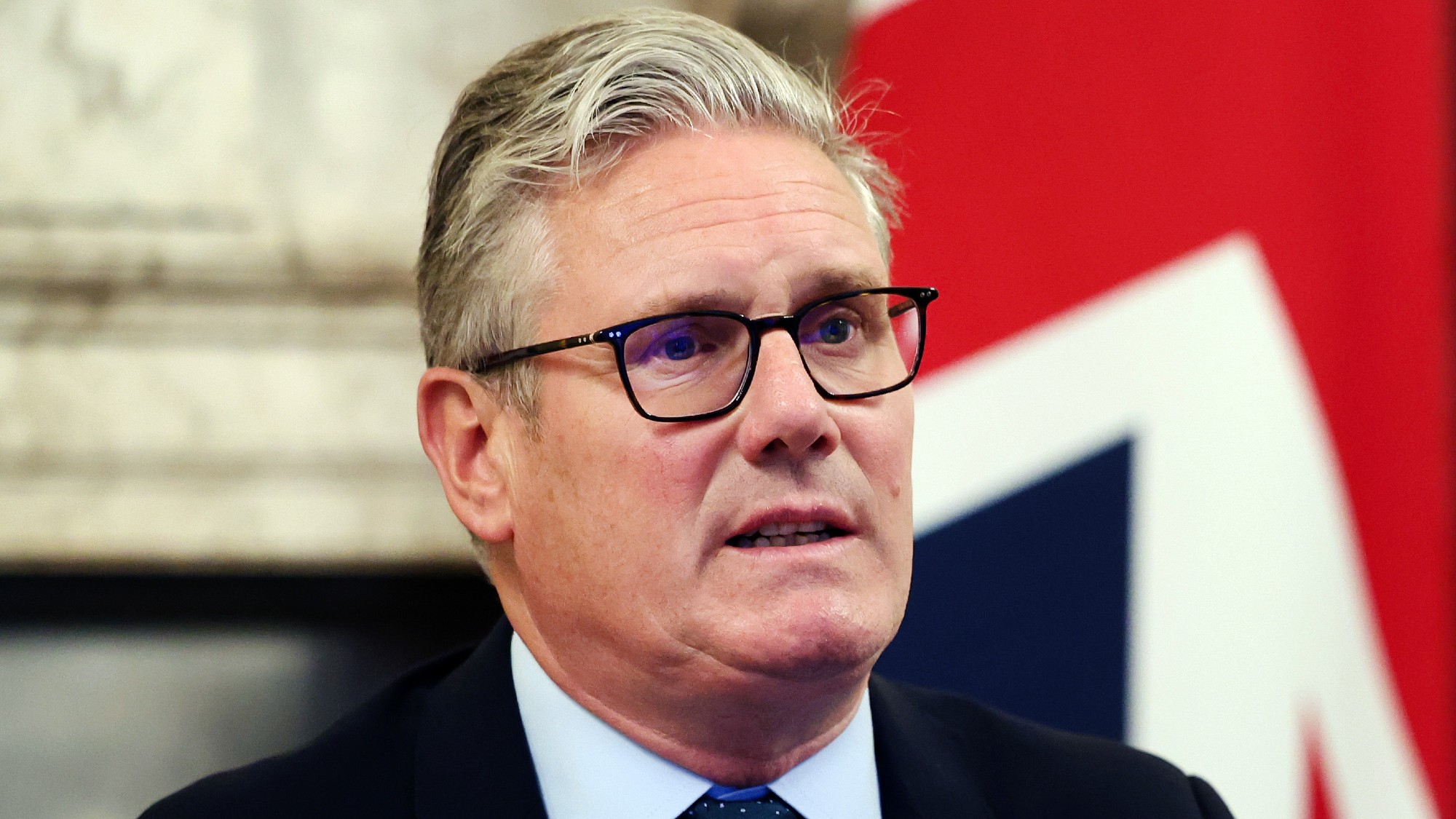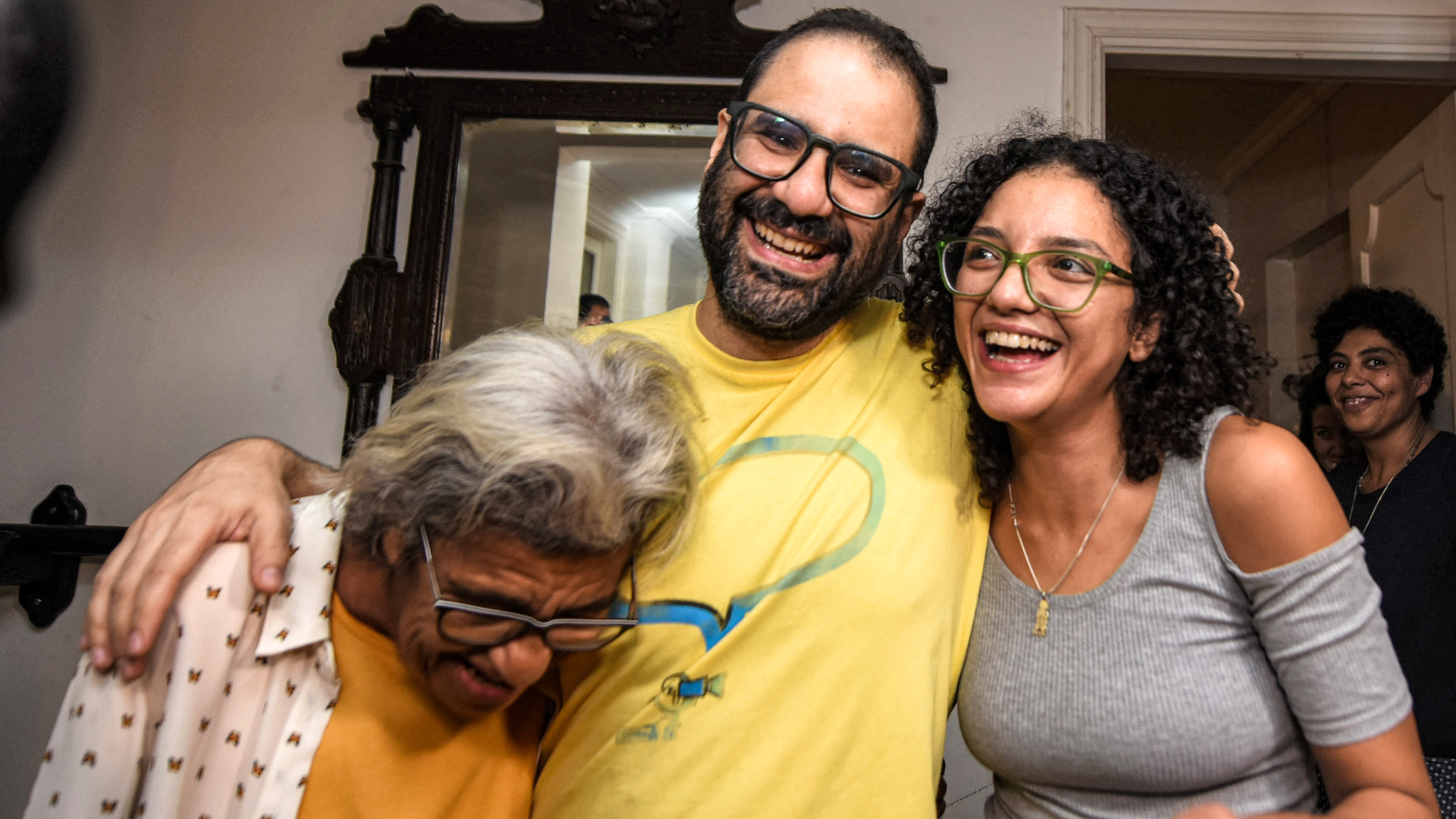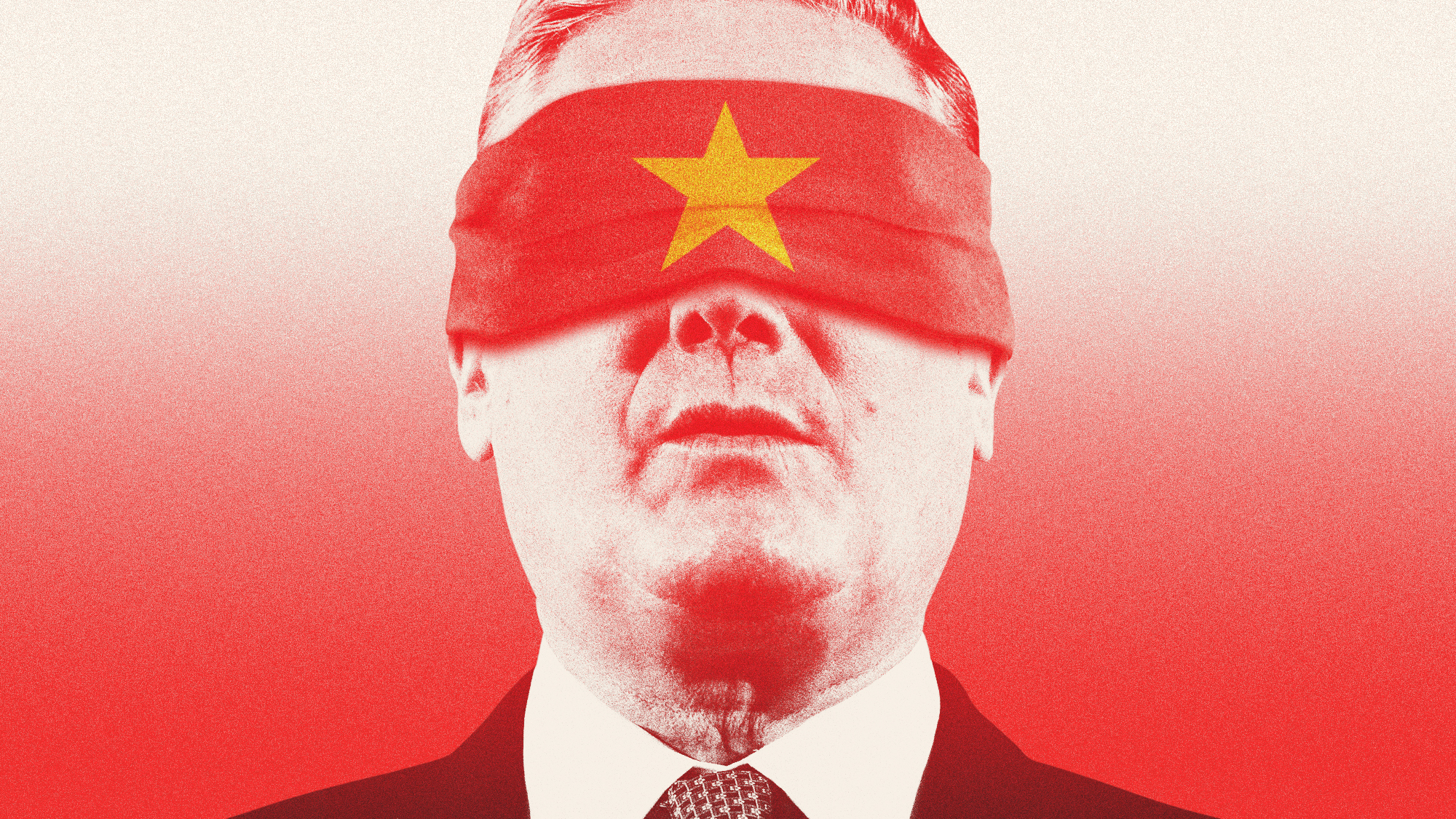Starmer 2.0: what will 'phase two' of Labour government deliver?
Reshaped No. 10 may bring fresh perspective but questions about overall vision remain

A free daily email with the biggest news stories of the day – and the best features from TheWeek.com
You are now subscribed
Your newsletter sign-up was successful
Keir Starmer has described his shake-up in Downing Street as the "second phase" of his government, insisting it is not a "reshuffle".
In a radio interview with the BBC's Matt Chorley, the prime minister said his focus was on "delivery, delivery, delivery", admitting that he was "frustrated" by the pace of his government's progress so far. "I do want to go further and faster and, yes, I'm frustrated about that," he said.
The latest changes come after other high-profile departures from No. 10 in the past year. In October, we had the exit of chief of staff Sue Gray, followed, in March, by communications director Matthew Doyle. Now, Doyle's replacement, James Lyons, is stepping down, and Nin Pandit, the prime minister's principal private secretary, will move to a new role overseeing the delivery of Downing Street's key priorities.
The Week
Escape your echo chamber. Get the facts behind the news, plus analysis from multiple perspectives.

Sign up for The Week's Free Newsletters
From our morning news briefing to a weekly Good News Newsletter, get the best of The Week delivered directly to your inbox.
From our morning news briefing to a weekly Good News Newsletter, get the best of The Week delivered directly to your inbox.
What did the commentators say?
Among the key new appointments is Darren Jones, poached from his role as Chancellor Rachel Reeves' deputy to become Starmer's chief secretary. Labour's "rising star" will attend Cabinet meetings and "directly oversee work across government to support the delivery of the Prime Minister's priorities", said Helen Corbett in The Independent. Treasury minister James Murray will take over his old job as Treasury chief secretary.
Starmer has also appointed former Bank of England deputy governor Minouche Shafik as his chief economic adviser. The move is seen as part of an effort to "build economic expertise" within the government ahead of this autumn's Budget.
The PM will be hoping that his "new recruits and sideways moves" will give Downing Street something it has been lacking since day one: "a clear chain of command and sense of direction", said Patrick Maguire in The Times. "This is about bringing the grown-ups in," one insider told him.
But changes to the machinery of government "quicken no pulses outside of the Westminster village" and are unlikely to lead to "any imminent change in this administration's political fortunes". Any suggestions of "a complete political reinvention" are clearly "overdone". "For better or worse, the triumvirate at the heart of this government – Starmer, Rachel Reeves and Morgan McSweeney, the prime minister's chief of staff – has been preserved."
A free daily email with the biggest news stories of the day – and the best features from TheWeek.com
This shuffle is noticeable for its "ruthlessness", said the BBC's Henry Zeffman. It's a "well-worn theme" of Starmer's leadership that he is "willing to demote, sideline or dispense with people who have served him very closely". For some of "his Labour critics", though, "ruthlessness is just a nice way of saying he is correcting his own errors".
More importantly, the shake-up is "significant because of what it says about how Starmer sees his premiership so far. It is, implicitly, an admission that the first year and a bit of his tenure has not exactly gone to plan. And this is his attempt to ensure the next year and a bit goes a lot better."
Yet the "churn" of personnel has "fuelled questions among Starmer's MPs about his overall vision – or lack of it," said Dan Bloom on Politico, citing one loyal Labour MP saying, "We are like a piece of driftwood floating on the ocean, looking at the view. It's a nice view but where are we going?"
"People need to panic a bit less," another Labour official told Bloom, pointing out that a "huge amount" is being done but some of it, such as extending free school meals to 500,000 more children, doesn't resonate with those inside the Westminster bubble.
What next?
It's party conferences next and, then, the major political event of the Budget. Until that arrives, "feverish speculation will continue about the size of the fiscal black hole created by policy U-turns and the likely downgrade to the economic and fiscal forecast, and how Rachel Reeves will choose to fill it," said Hannah White at the Institute for Government think tank.
What is clear from the polls is that phase one of Keir Starmer's premiership has "not impressed the public". So, "if phase two – the delivery phase – is to be any different, then the prime minister needs the latest No. 10 reorganisation to deliver for him".
Sorcha Bradley is a writer at The Week and a regular on “The Week Unwrapped” podcast. She worked at The Week magazine for a year and a half before taking up her current role with the digital team, where she mostly covers UK current affairs and politics. Before joining The Week, Sorcha worked at slow-news start-up Tortoise Media. She has also written for Sky News, The Sunday Times, the London Evening Standard and Grazia magazine, among other publications. She has a master’s in newspaper journalism from City, University of London, where she specialised in political journalism.
-
 Political cartoons for February 15
Political cartoons for February 15Cartoons Sunday's political cartoons include political ventriloquism, Europe in the middle, and more
-
 The broken water companies failing England and Wales
The broken water companies failing England and WalesExplainer With rising bills, deteriorating river health and a lack of investment, regulators face an uphill battle to stabilise the industry
-
 A thrilling foodie city in northern Japan
A thrilling foodie city in northern JapanThe Week Recommends The food scene here is ‘unspoilt’ and ‘fun’
-
 The Mandelson files: Labour Svengali’s parting gift to Starmer
The Mandelson files: Labour Svengali’s parting gift to StarmerThe Explainer Texts and emails about Mandelson’s appointment as US ambassador could fuel biggest political scandal ‘for a generation’
-
 Will Peter Mandelson and Andrew testify to US Congress?
Will Peter Mandelson and Andrew testify to US Congress?Today's Big Question Could political pressure overcome legal obstacles and force either man to give evidence over their relationship with Jeffrey Epstein?
-
 Reforming the House of Lords
Reforming the House of LordsThe Explainer Keir Starmer’s government regards reform of the House of Lords as ‘long overdue and essential’
-
 How long can Keir Starmer last as Labour leader?
How long can Keir Starmer last as Labour leader?Today's Big Question Pathway to a coup ‘still unclear’ even as potential challengers begin manoeuvring into position
-
 What is at stake for Starmer in China?
What is at stake for Starmer in China?Today’s Big Question The British PM will have to ‘play it tough’ to achieve ‘substantive’ outcomes, while China looks to draw Britain away from US influence
-
 Can Starmer continue to walk the Trump tightrope?
Can Starmer continue to walk the Trump tightrope?Today's Big Question PM condemns US tariff threat but is less confrontational than some European allies
-
 Alaa Abd el-Fattah: should Egyptian dissident be stripped of UK citizenship?
Alaa Abd el-Fattah: should Egyptian dissident be stripped of UK citizenship?Today's Big Question Resurfaced social media posts appear to show the democracy activist calling for the killing of Zionists and police
-
 Is Keir Starmer being hoodwinked by China?
Is Keir Starmer being hoodwinked by China?Today's Big Question PM’s attempt to separate politics and security from trade and business is ‘naïve’